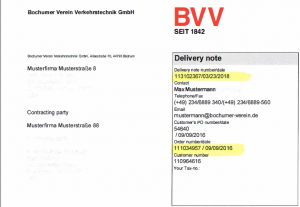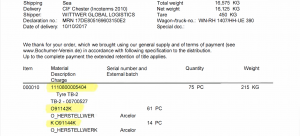Material testing laboratory
Bochumer Verein Verkehrstechnik GmbH has fully ILAC-certified testing facilities for mechanical, metallographic, non-destructive and fatigue testing. However, we also cooperate with a number of renowned testing and research laboratories and institutes.
The metallurgical testing laboratory of the Bochumer Verein is certified according to EN ISO/IEC 17025:2005 as an independent and autonomous testing laboratory. In addition to internal services, the laboratory also offers its services to external customers.

 Deutsch
Deutsch
